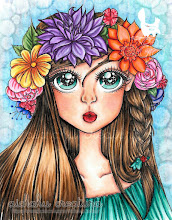This entry isn't about books I've read recently. It's about books I've borrowed from the library and NOT read. I'm in this rushed and stressed state of mind. I am unable to think straight and the books I picked up just demanded too much from me. So I didn't read them at all. Here are the reasons why:
1. The Book of Dave, Will Self
Promising premise and captivating blurb on the back cover, but the writer lost me from the start of the 9th line of the first page. Trying to be the next Anthony Burgess, I suppose, he wrote conversations and thoughts to reflect future vocabulary, speech patterns and pronunciations. One sentence of "Wot if Eye woz up vair, Carl thought, up vair lyke ve Flyin I?" is fine enough to grapple with. But when the frequency of such writing increased and I lost sense of what the characters were saying, I put down the book, never mustering anymore interest in picking it up again.
2. Nocturnes, by John Connolly
I wanted to read The Book of Lost Things which
Chris reviewed beautifully, but my library reservation wasn't ready yet, so I picked up Connolly's anthology of scary stories to tide me over. I read a couple of the stories and they were interesting enough, but John Connolly's writing voice is very peculiar and its dryness seems to hover consistently over every story I read in the anthology, making it difficult for me to lose myself in any of the plots. I am ever conscious of John Connolly the writer, so it made me feel like I was going through an academic exercise, instead of enjoying myself reading stories. I read two and a half stories, then didn't continue with the rest of the collection.
3. Resonator, by Prentis Rollins
This was one book I borrowed without flipping through the contents first. I thought it would show me how writers wrote up the script for comics and graphic novels. I recall seeing something like a script in one of Neil Gaiman's books, so I thought this book might provide equally interesting enlightenment. Serves me right for not checking first. I found Rollins only wrote about the process of developing the story, and that took about 4-5 pages of the chapter. He did not show how he wrote up the script for the comic, except for one page which contained partial images from his original stories and just a bit of his comic script. I suppose it is because he is both the writer and the artist for the graphic novel, Resonator, he did not need to write much more than the dialogue for the script. In the end, I did not learn much from this book as a wanna-be-writer and I lost interest in reading the graphic novel itself. His artwork is very lush and detailed though and he does go into great lengths to describe his drawing process, with chapters on preproduction, pencilling, inking and lettering. I think it will be a better resource for an artist interested in drawing a comic or graphic novel.
4. Before Midnight, by Cameron Dokey.
I did not give this book a chance. I read the first page and then I felt I did not get a good enough hook right from the start - the pacing of the writing was not what I needed at this point - so I just stopped reading this. I think it might be a good story for light-reading but I just really want to sink into some "lose yourself into the story right from the start" type of story. This really didn't do it for me, right from the start.
5. Fantasy - The best of the Year, 2006 Edition
Read one and a half stories from this collection. Then no more interest. Too tired.
That's it. All the books I didn't read. I'm really out of it again at this point in time. Seems like life is bearing down on me again and I'm losing my mental capacity to sustain interest in reading. I didn't complete the Banned Books Challenge, which ended on 30 June. I seem to have energy only to knit while I watch TV/discs (Supernatural, Smallville, K-drama, that kind of thing) and do some sewing here and there when I can find the time. I really need to sink my teeth into some good escapist fiction. Just have to find the right one. I'm collecting The Book of Lost Things from the library reservation counter this weekend. I hope it will be
the book.
